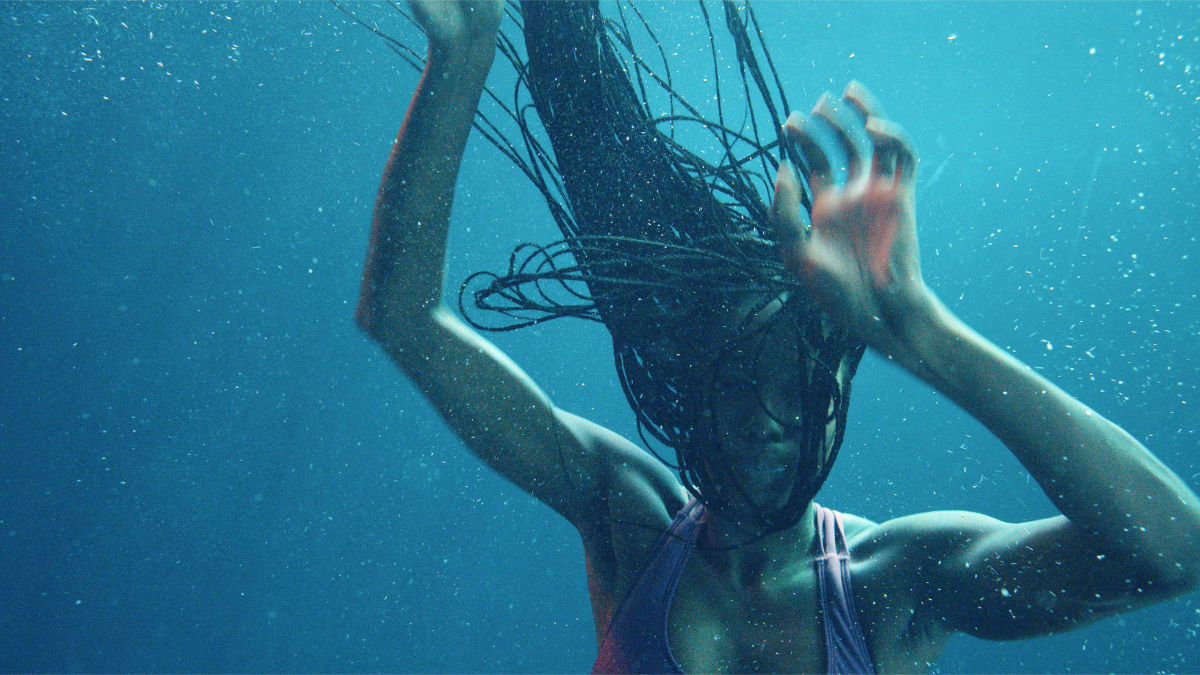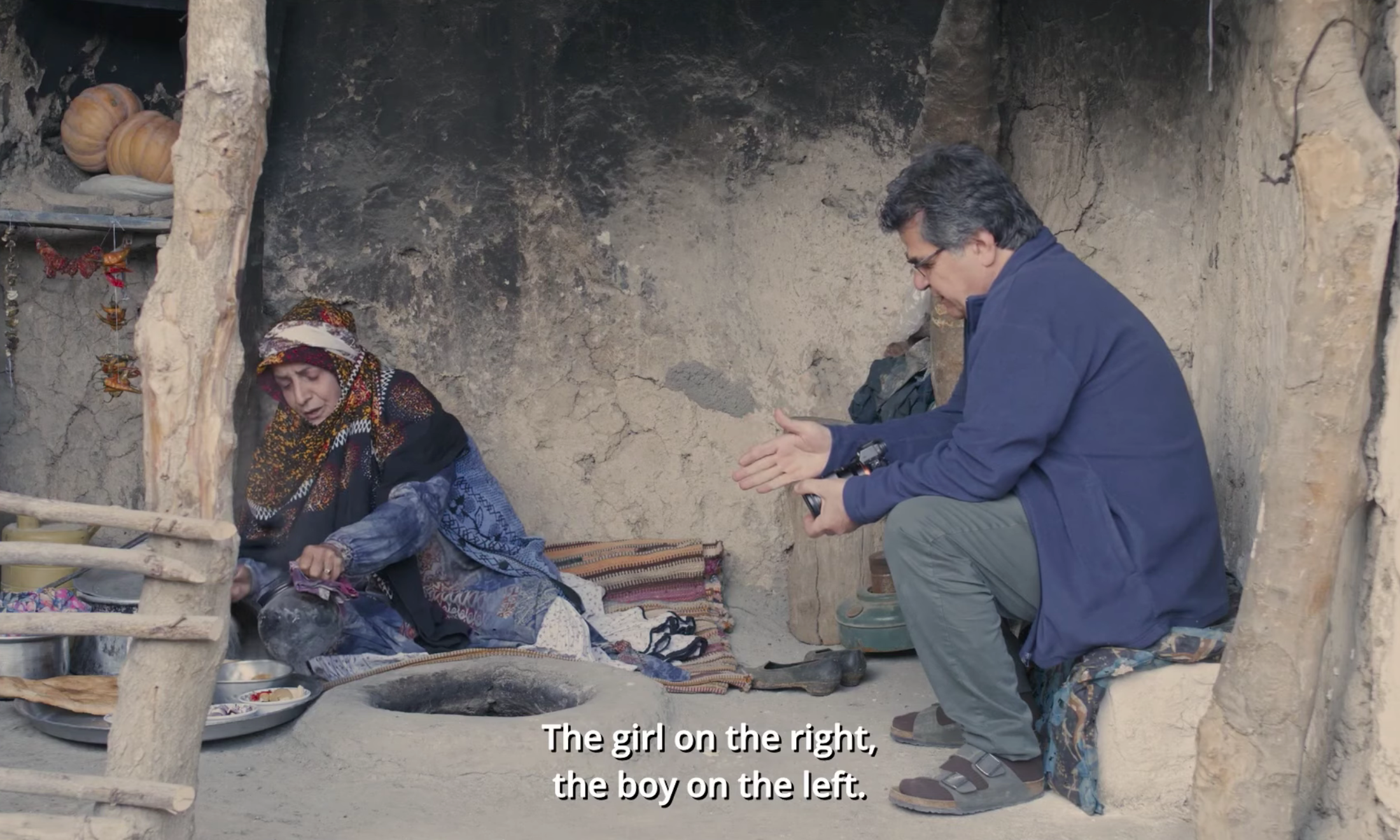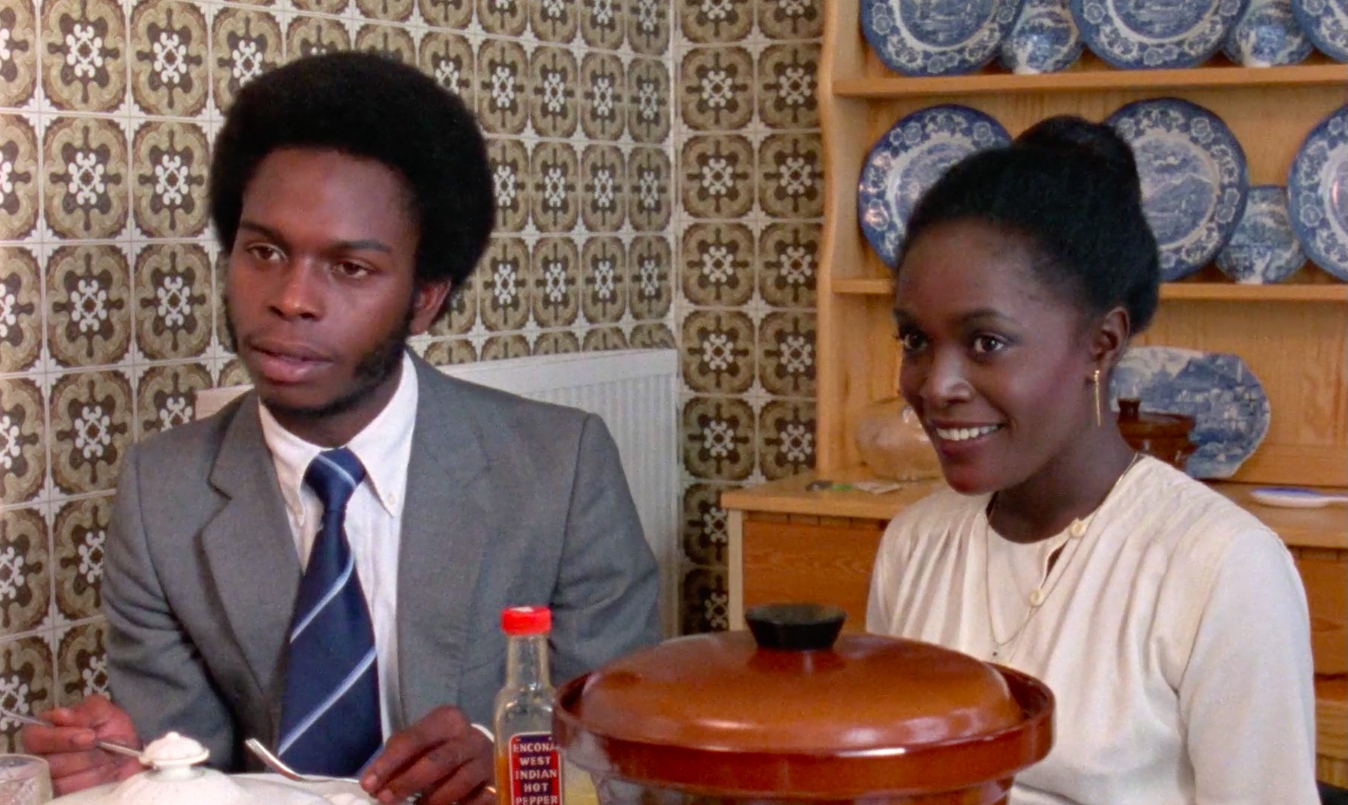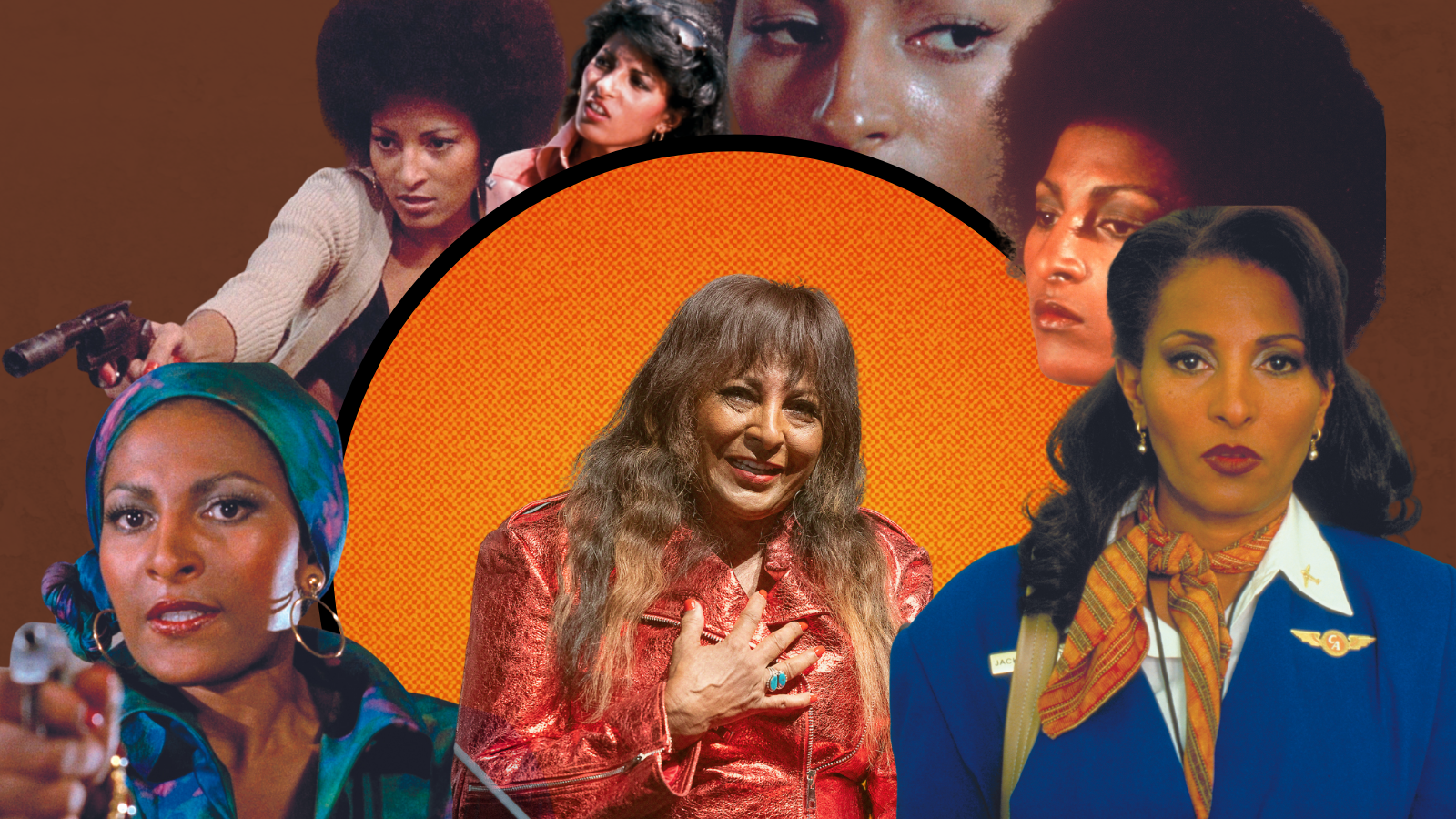
Anna Kooris / A24 Films
Janicza Bravo on how her stripper road-trip comedy Zola takes you on an unsettling unexpected journey
From Twitter thread to Sundance favourite, Zola's story has been read and told many times, but not like this.
Kemi Alemoru
06 Aug 2021
As the director of one of the most-anticipated films of 2021, Janicza Bravo is feeling the pressure. She’s gearing up for the worldwide release of Zola, a film based on one of the most famous Twitter threads of all time – a white knuckle ride through the American South, interracial friendship and sex work, as two women who met in a Hooters set off on a road trip to make money from stripping together. However, “if you entered the movie, wanting to have the experience you had on Twitter,” says Janicza, “you might not be satisfied.”
We’re at Picturehouse Central during Sundance Film Festival: London, and after a swiftly dodged handshake (Janicza has only just completed her quarantine after arriving in the UK), the director talks me through the film which had audiences buzzing at the US iteration of the film festival back in January 2020.
Teaming up with indie powerhouse A24 (they simply don’t make bad films), Janicza took the film in a different artistic direction than some may have expected. The film is jam-packed with artful shots; Zola and Stefani – portrayed by Taylour Paige and Riley Keough – stood in a Yayoi Kasama-esque mirrored room with multicoloured bulbs illuminating their faces; a Confederate flag as a subtle reminder of Zola’s precarity as she is outnumbered by Stefani, her pimp, and her boyfriend while being far from home. One very memorable scene is literally just Zola’s buoyant booty from below, a masterpiece. But weaved in with the laughs (recurring laughs garnered from repetitive jokes like “they started fuckin’, it was gross”) and the flair is the grimy underbelly of the lack of agency women are afforded over their own bodies, the peril of pimps, and how white womanhood is weaponised against black women as Stefani essentially lures Zola into a sex trafficking scenario under the guise of friendship.
In many ways, the original text is canon. Although now deleted after it was originally posted in 2015, the 148 tweet-long thread represents a heyday of Twitter where there was an abundance of real-life stories. Novice storytellers had recently been gifted the ability to thread their thoughts together, keeping you hooked to reams of text that at times felt longer (and juicier) than the Daily Mail sidebar of shame. “Twitter was its own beast and everyone knows that iteration. I knew that no matter how close the film tries to come to that, someone would be disappointed,” Janicza says, comparing reactions to the film with the way Harry Potter readers have expressed disappointment at some of the films’ choices. A self-confessed “theatre kid at heart”, Janicza set about adapting Zola’s story with the same reverence as a Shakespeare play, honouring the text but essentially using it as “a stepping stone” for Janicza to tell her own tale.
I too was expecting to see a more raucous Zola. In the thread she reads as a no-nonsense firebrand, yet in the film she’s mostly silent, save for her narration and the ping of her tweets. Janicza says this is closer to the real Zola, whose real name is A’Ziah King and is credited as an executive producer. “I thought, ‘she is going to be so bombastic, she’s going to take up the most amount of space, it’s gonna be a fucking riot,’” Janicza says. “We got on the phone, and I couldn’t even hear her. I was like, ‘what decibel are you speaking at?’”
When it was first announced that Zola would be adapted for screens, James Franco was directing and Andrew Neel and Mike Roberts had written the script. Around the same time, fans were calling for Harmony Korine to make it, and for it to be like Spring Breakers with some of the ingredients of American Honey. “That movie was a party,” says Janicza of the script that preceded Slave Play playwright Jeremy O’Harris’ interpretation, which he wrote while still in college. “Without disparaging that piece, the word ‘nigga’ appeared in it way too many times, and there was tonnes of female nudity in the first 20 pages.” In Janicza and Jeremy’s version, there are far more penis shots than breasts.
Ultimately, Janicza observed that Zola is actually the tale of a woman who has gone through a traumatising ordeal, and used her online platform to voice her discomfort. “I kept thinking about what’s behind the curtain. On the surface, it reads as really fun and pretty fucking out there and it is a ride, but when I read it, and maybe this is just because my brain is a little bit broken, but when I read it I was like, ‘this is so dark,’” the director explains.
During the trip, it becomes clear that Stefani intends to sleep with men for money and perhaps get Zola to join in also, with her handler setting up an online profile to drive clients to sleep with her for a discount price. Even though this is mentioned in the original thread the delivery clouds the trauma of the situation. “All my friends were like, ‘it is so fun, it’s a party, it’s a ride’. I would go out and people were screaming, ‘pussy is worth thousands’ and I’m like, that’s because she had sex for a dollar, that’s why,” says Janicza. It was actually $100 but still, the point remains that the more you think about the details of the story, the more you realise how unsettled you would be if you were in Zola’s position. That’s where Janicza places the viewer – we are seeing events unfold through Zola’s confused eyes as she observes the chaos.
“When I did my initial dramaturgical research, every article including the Rolling Stone article questioned the validity of Zola’s story. They never bring up the fact that she’s 19, and the reason it matters is that that age implies a kind of innocence, right? That age means she’s moving through the world with rose-tinted lenses,” Janicza adds. “By adultifying her, it means you feel less sympathy.”
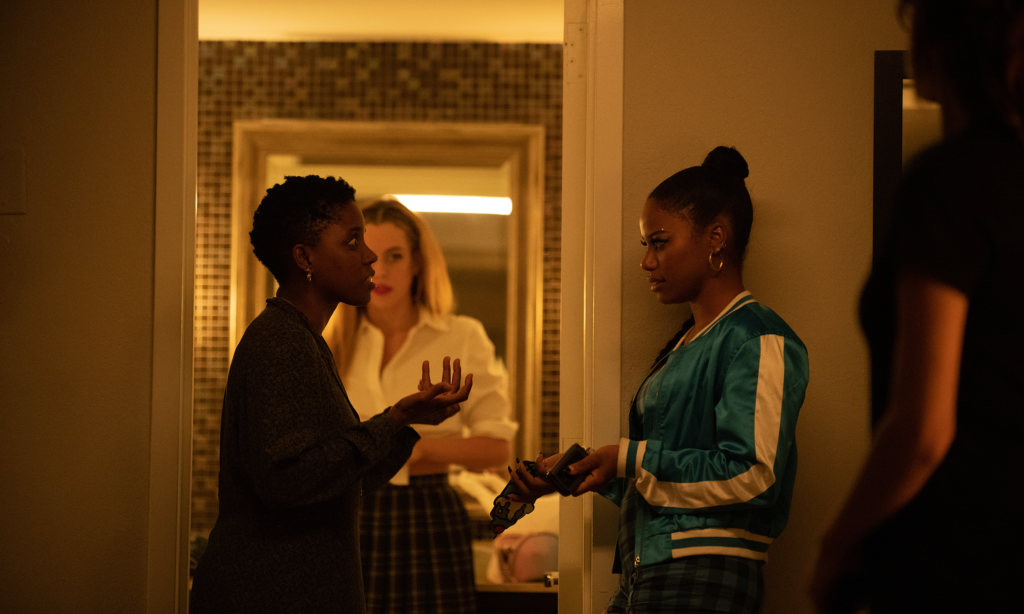
Credit: Anna Kooris / A24 Films
With her smoothed baby hairs and African American slang, Stefani is a fascinating character throughout. Through her irritating blaccent, Janicza makes it clear this movie is about race play and how whiteness and blackness interact with each other. With Boots Riley’s 2018 film Sorry to Bother You and Spike Lee’s film in the same year BlackKklansman, white voices were central, giving the black characters access to capital, status and even white supremacist organisations. In Get Out, the white voices of the black characters is an unsettling irregularity and blackness is a commodity for white people to take advantage of and inhabit. Here in Zola, Riley’s performance and the employment of black voice gives her proximity to the black men around her who are essentially her handlers and to Zola who is ensnared by its familiarity. Stefani is made all the more jarring by the fact that she aesthetically and vocally borrows from blackness, but dismisses another black woman as “ghetto”.
All this squares with Janicza’s portfolio, which includes her 2017 debut feature Lemon and directing credits on Atlanta and Dear White People – a collection of stories where whiteness is examined with the same scrutiny as any other race is in wider society. “We’re taught to engage and see whiteness as invisible, but as a black woman it’s so visible and sometimes violent to you,” she says. “You look at Riley and she’s pink bubblegum and it doesn’t matter how menacing she is, there was something quite pleasing about her. She plays a very violent character but you’re still like, ‘oh but she has a baby’. She’s fucking great at it.”
Janicza has made a bold move, taking what people would expect to be a comedic stripping road-trip rager into a “really fucking dark” conversation around sex work and race. “If the movie does well, there are a lot of reasons why the movie does well. If it’s bad, I’m the only reason,” she says, rolling her eyes. “That’s how the math works.” However, she’s still honing in on her directorial style, her “lane”, which she dubs as “stressful comedy” – a movie that can make you belly laugh one minute and then feel “deeply uncomfortable” the next.
Upon analysis, Zola is more reflective of our current day and public discourse than the original thread from 2015. That’s pre-Trump, it predates the term ‘Karen’ and prominent conversations around how white women weaponise their perceived vulnerability, and it’s the same year as Jessica Pressler’s 2015 feature in The Cut that eventually became another viral story turned stripper movie, Hustlers. Janicza’s take remixes a tale from over half a decade ago and makes it zeitgeisty and urgent. The road trip movie is still a wild ride, but like Zola, you might end up going on a journey that you really didn’t expect.






